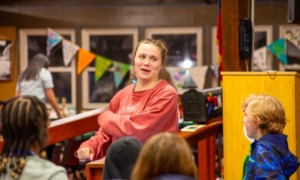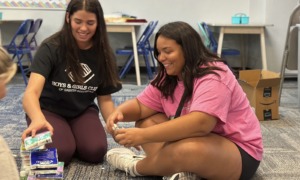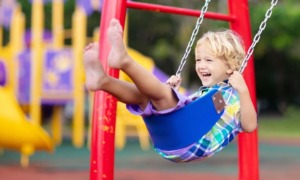
Alinute Silzeviciut/Shutterstock
.
Year after year, thousands of children have the opportunity to enjoy the wonders of summer camp. This is their time to make new friends, unwind from the school year, have fun and overall just focus on being a kid. While there are children who have the pleasure of only worrying about “kid things,” some children don’t have this luxury. When youth with Type 1 diabetes attend nonmedical camps, the camps are not as equipped with the type of support and understanding of their disease that’s found at a medical specialty camp.
Youth who attend medical specialty camps can engage in recreational activities and form relationships with other kids who live as they do. At nonmedical camps, it may not be as easy for a child with a health condition, like Type 1 diabetes, to get the full satisfaction of camp if they don’t have proper medical personnel and a nutritionist. It is also often hard for kids with differences to feel included, especially at a younger age when everyone is learning more about their self-image and where they fit socially. Attending a medical specialty camp can be extremely beneficial, helping children become more resilient and less reluctant to adhere to their treatment.

Asiah Allen
Youth who have been diagnosed at an early age and who have dealt with Type 1 diabetes for a while can often have some setbacks while adhering to their treatments. One may wonder how they can ignore their treatment, especially when it can become deadly, but it is important to remember they are children and may grow tired of having to think about the
additional stress that comes with Type 1 diabetes.
During a recent medical specialty camp run by Old Dominion University and the Lions Club of Virginia, participants and parents were asked what may cause a child to avoid their treatment. A slew of answers were given, but the one that stood out the most was from a parent and their child. In the simplest terms, they explained, “It’s like when you have a big test coming up. You know in the back of your head that you should study for this test, but you just ignore it and put it off until the day of the test, and you realize that you’ve run out of time to fix it.”
Role models

Cienna Gabriele
At medical specialty camps, specifically, the one listed above, children are led by college-aged individuals, some of whom have Type 1 diabetes themselves. This is an essential piece of the camp because having someone who is older, but not a parent, sharing the battles and successes related to growing up with this condition shows youth it is possible to have a life just like children without Type 1 diabetes.
Not only is this camp a medical specialty camp, it is also a family camp, which means the children and their families get to enjoy a weekend with other families just like theirs. Old Dominion students serve as both counselors and mentors to the kids, giving the parents time for group sessions where they can interact with each other. The children also have their endocrinologist and other medical staff they are familiar with there, which makes their experience even greater. This medical support, along with the support from their peers, allows each child to feel they are included and that their voice is heard.
When people hear the term “medical specialty camp,” they may interpret that as a not-so-intense form of recreation. That could not be further from the truth: The children who attend the Family Diabetes Camp through the Lions and Old Dominion get a full camp experience packed into a weekend. They get rock climbing, s’mores, archery and most importantly, they get to be surrounded by people who support them unconditionally and are free to be the outstanding kids they are.
At the end of the weekend, which comes way too fast for anybody’s liking, each child is presented with a superlative nickname, unique to them, made up specially by their counselors. Before everyone heads their separate ways until the next year, lots of hugs are given and contact information is exchanged, just like a “regular” camp.
Asiah Allen is a graduate research assistant for the Parks, Recreation and Tourism program at Old Dominion University. She has experience as a NOLS in-town operations staff and a rock wall instructor for youth in a behavioral health setting and is a certified recreation therapist.
Cienna Gabriele is in her fifth year at Old Dominion University studying therapeutic recreation.































